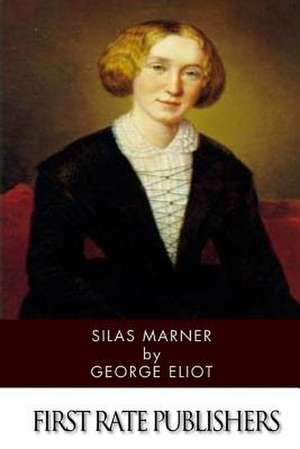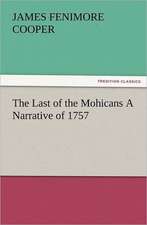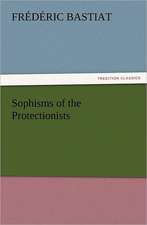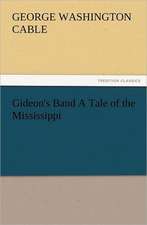Silas Marner
Autor George Elioten Limba Engleză Paperback
| Toate formatele și edițiile | Preț | Express |
|---|---|---|
| Paperback (49) | 19.89 lei 3-5 săpt. | +5.94 lei 7-13 zile |
| HarperCollins Publishers – 31 dec 2010 | 19.89 lei 3-5 săpt. | +5.94 lei 7-13 zile |
| Wordsworth Editions – 30 sep 1994 | 25.50 lei 3-5 săpt. | +4.12 lei 7-13 zile |
| Bantam Books – 31 aug 1981 | 28.04 lei 3-5 săpt. | |
| OUP OXFORD – 13 iul 2017 | 32.90 lei 10-16 zile | +13.18 lei 7-13 zile |
| Random House UK – 4 iun 2014 | 37.29 lei 23-34 zile | +13.49 lei 7-13 zile |
| Penguin Books – 28 noi 2012 | 42.66 lei 23-34 zile | +15.48 lei 7-13 zile |
| CREATESPACE – | 42.75 lei 3-5 săpt. | |
| Penguin Books – 26 mar 2003 | 43.17 lei 23-34 zile | +16.33 lei 7-13 zile |
| Alma Books COMMIS – 28 iun 2021 | 45.27 lei 3-5 săpt. | +9.34 lei 7-13 zile |
| CREATESPACE – | 48.05 lei 3-5 săpt. | |
| CreateSpace Independent Publishing Platform – | 48.45 lei 3-5 săpt. | |
| Real Reads – 31 oct 2012 | 50.43 lei 3-5 săpt. | +5.98 lei 7-13 zile |
| CREATESPACE – | 52.52 lei 3-5 săpt. | |
| CREATESPACE – | 62.99 lei 3-5 săpt. | |
| CREATESPACE – | 63.18 lei 3-5 săpt. | |
| EMPIRE BOOKS – 31 dec 2011 | 65.68 lei 3-5 săpt. | |
| CREATESPACE – | 66.96 lei 3-5 săpt. | |
| – | 70.06 lei 3-5 săpt. | |
| CREATESPACE – | 75.92 lei 3-5 săpt. | |
| – | 77.73 lei 3-5 săpt. | |
| – | 80.09 lei 3-5 săpt. | |
| – | 87.37 lei 3-5 săpt. | |
| – | 88.33 lei 3-5 săpt. | |
| CREATESPACE – | 91.64 lei 3-5 săpt. | |
| CREATESPACE – | 93.63 lei 3-5 săpt. | |
| CREATESPACE – | 99.05 lei 3-5 săpt. | |
| CREATESPACE – | 103.55 lei 3-5 săpt. | |
| Hansebooks – 3 apr 2016 | 270.42 lei 3-5 săpt. | |
| CreateSpace Independent Publishing Platform – | 59.90 lei 6-8 săpt. | |
| Aziloth Books – 20 aug 2010 | 60.13 lei 6-8 săpt. | |
| – | 80.81 lei 6-8 săpt. | |
| – | 81.22 lei 6-8 săpt. | |
| Lulu.Com – 4 mai 2018 | 81.77 lei 6-8 săpt. | |
| BBBZ Books – 20 oct 2010 | 90.11 lei 6-8 săpt. | |
| Blurb – 6 feb 2019 | 93.43 lei 38-44 zile | |
| Akasha Classics – 11 apr 2009 | 93.95 lei 6-8 săpt. | |
| 1st World Library – | 96.77 lei 6-8 săpt. | |
| Bibliotech Press – 11 aug 2020 | 102.10 lei 6-8 săpt. | |
| Saint Clair Publications – 30 noi 2011 | 103.53 lei 6-8 săpt. | |
| Samuel French Ltd – 3 mai 2011 | 108.11 lei 6-8 săpt. | |
| Lulu Press Inc – 9 mar 2020 | 124.24 lei 6-8 săpt. | |
| LIGHTNING SOURCE INC – 16 mai 2018 | 124.43 lei 17-23 zile | |
| LIGHTNING SOURCE INC – 16 mai 2018 | 127.79 lei 17-23 zile | |
| Echo Library – 30 iul 2003 | 138.92 lei 38-44 zile | |
| TREDITION CLASSICS – 31 oct 2011 | 148.79 lei 6-8 săpt. | |
| Echo Library – 7 mai 2006 | 183.34 lei 38-44 zile | |
| Cambridge University Press – 24 mai 1995 | 187.79 lei 6-8 săpt. | |
| Hubbard Press – 25 oct 2007 | 222.51 lei 6-8 săpt. | |
| Cambridge University Press – 2 ian 2013 | 368.87 lei 6-8 săpt. | |
| Hardback (9) | 109.28 lei 3-5 săpt. | |
| Mint Editions – 25 ian 2021 | 109.28 lei 3-5 săpt. | |
| chiltern publishing – 22 aug 2022 | 126.75 lei 3-5 săpt. | +16.80 lei 7-13 zile |
| Akasha Classics – 11 apr 2009 | 176.26 lei 6-8 săpt. | |
| Lulu.Com – 4 mai 2018 | 182.46 lei 6-8 săpt. | |
| Aegypan Press – 30 noi 2006 | 185.54 lei 6-8 săpt. | |
| 1st World Library – | 190.92 lei 6-8 săpt. | |
| BBBZ BOOKS – 3 apr 2018 | 231.15 lei 6-8 săpt. | |
| Echo Library – 31 dec 2006 | 270.75 lei 38-44 zile | |
| Cambridge University Press – 8 mai 2013 | 593.51 lei 6-8 săpt. |
Preț: 42.75 lei
Nou
Puncte Express: 64
Preț estimativ în valută:
8.18€ • 8.54$ • 6.86£
8.18€ • 8.54$ • 6.86£
Carte disponibilă
Livrare economică 19 februarie-05 martie
Preluare comenzi: 021 569.72.76
Specificații
ISBN-13: 9781497573154
ISBN-10: 1497573157
Pagini: 110
Dimensiuni: 152 x 229 x 6 mm
Greutate: 0.16 kg
Editura: CREATESPACE
ISBN-10: 1497573157
Pagini: 110
Dimensiuni: 152 x 229 x 6 mm
Greutate: 0.16 kg
Editura: CREATESPACE
Textul de pe ultima copertă
After suffering betrayal and rejection, Silas Marner leaves his community to settle in a strange place. There the lonely weaver becomes obsessed with accumulating money, until one day a little golden-haired orphan girl wanders into his home... Set at the beginning of the industrial revolution, Silas Marner weaves a telling social commentary into an inspiring tale of love and redemption.
Descriere
Descriere de la o altă ediție sau format:
Gold! - his own gold - brought back to him as mysteriously as it had been taken away!Falsely accused of theft, Silas Marner is cut off from his community but finds refuge in the village of Raveloe, where he is eyed with distant suspicion. Like a spider from a fairy-tale, Silas fills fifteen monotonous years with weaving and accumulating gold. The son of the wealthy local Squire, Godfrey Cass also seeks an escape from his past. One snowy winter, two events change the course of their lives: Silas's gold is stolen and, a child crawls across his threshold. Combining the qualities of a fable with a rich evocation of rural life in the early years of the nineteenth century, Silas Marner (1861) is a masterpiece of construction and a powerful meditation on the value of communal bonds in a mysterious world.
Gold! - his own gold - brought back to him as mysteriously as it had been taken away!Falsely accused of theft, Silas Marner is cut off from his community but finds refuge in the village of Raveloe, where he is eyed with distant suspicion. Like a spider from a fairy-tale, Silas fills fifteen monotonous years with weaving and accumulating gold. The son of the wealthy local Squire, Godfrey Cass also seeks an escape from his past. One snowy winter, two events change the course of their lives: Silas's gold is stolen and, a child crawls across his threshold. Combining the qualities of a fable with a rich evocation of rural life in the early years of the nineteenth century, Silas Marner (1861) is a masterpiece of construction and a powerful meditation on the value of communal bonds in a mysterious world.
Notă biografică
Mary Ann Evans was born on November 22, 1819, at Chilvers Coton, Warwickshire, England, the last child of an estate agent. During her girlhood, she went through a phase of evangelical piety, but her strong interest in philosophy and her friendship with religious freethinkers led to a break with orthodox religion. When one of these friends married in 1843, Mary Ann took over from his wife the task of translating D.F. Strauss’s The Life of Jesus Critically Examined (1846), a work that had deep effect on English rationalism. After her father’s death she settled in London and from 1851 to 1854 she served as a writer and editor of the Westminster Review, the organ of the Radical party. In London she met she met George Henry Lewes, a journalist and advanced thinker. Lewes was separated from his wife, who had had two sons by another man, but had been unable to obtain a divorce. In a step daring for Victorian times, Mary Ann Evans began living openly with Lewes in 1854, in a union they both considered as sacred as a legal marriage and one that lasted until his death in 1878.
With Lewes’s encouragement, Mary Ann Evans wrote her first fictional work, “The Sad Fortunes of the Reverend Amos Barton,” for Blackwood’s Magazine in 1857; it was followed by two more stories published under the pseudonym George Elliot–“George” because it was Lewes’s name and “Eliot” because, she said, it was good mouth-filling, easily pronounced word.” At the age of thirty-nine she used her memories of Warwickshire to write her first long novel, Adam Bede (1859), a book that established her as the foremost woman novelist in her day. Then came The Mill on the Floss (1860), Silas Marner (1861), and Romola (1863). Her masterpiece and one of the greatest English novels, Middlemarch, was published in 1871-72. Her last work was Daniel Deronda (1876). After Lewes’s death George Eliot married John Walter Cross. He was forty; she was sixty-one. Before her death on December 22, 1880, she had been recognized by her contemporaries as the greatest living writer of English fiction.
With Lewes’s encouragement, Mary Ann Evans wrote her first fictional work, “The Sad Fortunes of the Reverend Amos Barton,” for Blackwood’s Magazine in 1857; it was followed by two more stories published under the pseudonym George Elliot–“George” because it was Lewes’s name and “Eliot” because, she said, it was good mouth-filling, easily pronounced word.” At the age of thirty-nine she used her memories of Warwickshire to write her first long novel, Adam Bede (1859), a book that established her as the foremost woman novelist in her day. Then came The Mill on the Floss (1860), Silas Marner (1861), and Romola (1863). Her masterpiece and one of the greatest English novels, Middlemarch, was published in 1871-72. Her last work was Daniel Deronda (1876). After Lewes’s death George Eliot married John Walter Cross. He was forty; she was sixty-one. Before her death on December 22, 1880, she had been recognized by her contemporaries as the greatest living writer of English fiction.
Extras
Chapter One
In the days when the spinning-wheels hummed busily in the farm-houses—and even great ladies, clothed in silk and thread-lace, had their toy spinning-wheels of polished oak—there might be seen in districts far away among the lanes, or deep in the bosom of the hills, certain pallid undersized men, who, by the side of the brawny country-folk, looked like the remnants of a disinherited race. The shepherd’s dog barked fiercely when one of these alien-looking men appeared on the upland, dark against the early winter sunset; for what dog likes a figure bent under a heavy bag?—and these pale men rarely stirred abroad without that mysterious burden. The shepherd himself, though he had good reason to believe that the bag held nothing but flaxen thread, or else the long rolls of strong linen spun from that thread, was not quite sure that this trade of weaving, indispensable though it was, could be carried on entirely without the help of the Evil One. In that far-off time superstition clung easily round every person or thing that was at all unwonted, or even intermittent and occasional merely, like the visits of the pedlar or the knife-grinder. No one knew where wandering men had their homes or their origin; and how was a man to be explained unless you at least knew somebody who knew his father and mother? To the peasants of old times, the world outside their own direct experience was a region of vagueness and mystery: to their untravelled thought a state of wandering was a conception as dim as the winter life of the swallows that came back with the spring; and even a settler, if he came from distant parts, hardly ever ceased to be viewed with a remnant of distrust, which would have prevented any surprise if a long course of inoffensive conduct on his part had ended in the commission of a crime; especially if he had any reputation for knowledge, or showed any skill in handicraft. All cleverness, whether in the rapid use of that difficult instrument the tongue, or in some other art unfamiliar to villagers, was in itself suspicious: honest folk, born and bred in a visible manner, were mostly not overwise or clever—at least, not beyond such a matter as knowing the signs of the weather; and the process by which rapidity and dexterity of any kind were acquired was so wholly hidden, that they partook of the nature of conjuring. In this way it came to pass that those scattered linen-weavers—emigrants from the town into the country—were to the last regarded as aliens by their rustic neighbours, and usually contracted the eccentric habits which belong to a state of loneliness.
In the early years of this century, such a linen-weaver, named Silas Marner, worked at his vocation in a stone cottage that stood among the nutty hedgerows near the village of Raveloe, and not far from the edge of a deserted stone-pit. The questionable sound of Silas’s loom, so unlike the natural cheerful trotting of the winnowing-machine, or the simpler rhythm of the flail, had a half-fearful fascination for the Raveloe boys, who would often leave off their nutting or birds’-nesting to peep in at the window of the stone cottage, counterbalancing a certain awe at the mysterious action of the loom, by a pleasant sense of scornful superiority, drawn from the mockery of its alternating noises, along with the bent, tread-mill attitude of the weaver. But sometimes it happened that Marner, pausing to adjust an irregularity in his thread, became aware of the small scoundrels, and, though chary of his time, he liked their intrusion so ill that he would descend from his loom, and, opening the door, would fix on them a gaze that was always enough to make them take to their legs in terror. For how was it possible to believe that those large brown protuberant eyes in Silas Marner’s pale face really saw nothing very distinctly that was not close to them, and not rather that their dreadful stare could dart cramp, or rickets,1 or a wry mouth at any boy who happened to be in the rear? They had, perhaps, heard their fathers and mothers hint that Silas Marner could cure folk’s rheumatism if he had a mind, and add, still more darkly, that if you could only speak the devil fair enough, he might save you the cost of the doctor. Such strange lingering echoes of the old demon-worship might perhaps even now be caught by the diligent listener among the grey-haired peasantry; for the rude mind with difficulty associates the ideas of power and benignity. A shadowy conception of power that by much persuasion can be induced to refrain from inflicting harm, is the shape most easily taken by the sense of the Invisible in the minds of men who have always been pressed close by primitive wants, and to whom a life of hard toil has never been illuminated by any enthusiastic religious faith. To them pain and mishap present a far wider range of possibilities than gladness and enjoyment: their imagination is almost barren of the images that feed desire and hope, but is all overgrown by recollections that are a perpetual pasture to fear. “Is there anything you can fancy that you would like to eat?” I once said to an old labouring man, who was in his last illness, and who had refused all the food his wife had offered him. “No,” he answered, “I’ve never been used to nothing but common victual, and I can’t eat that.” Experience had bred no fancies in him that could raise the phantasm of appetite.
And Raveloe was a village where many of the old echoes lingered, undrowned by new voices. Not that it was one of those barren parishes lying on the outskirts of civilisation—inhabited by meagre sheep and thinly-scattered shepherds: on the contrary, it lay in the rich central plain of what we are pleased to call Merry England, and held farms which, speaking from a spiritual point of view, paid highly-desirable tithes. But it was nestled in a snug well-wooded hollow, quite an hour’s journey on horseback from any turnpike,2 where it was never reached by the vibrations of the coach-horn, or of public opinion. It was an important-looking village, with a fine old church and large churchyard in the heart of it, and two or three large brick-and-stone homesteads, with well-walled orchards and ornamental weathercocks, standing close upon the road, and lifting more imposing fronts than the rectory, which peeped from among the trees on the other side of the churchyard:—a village which showed at once the summits of its social life, and told the practised eye that there was no great park and manor-house in the vicinity, but that there were several chiefs in Raveloe who could farm badly quite at their ease, drawing enough money from their bad farming, in those war times,3 to live in a rollicking fashion, and keep a jolly Christmas, Whitsun, and Easter tide.
It was fifteen years since Silas Marner had first come to Raveloe; he was then simply a pallid young man, with prominent short-sighted brown eyes, whose appearance would have had noth- ing strange for people of average culture and experience, but for the villagers near whom he had come to settle it had mysterious peculiarities which corresponded with the exceptional nature of his occupation, and his advent from an unknown region called “North’ard.” So had his way of life:—he invited no comer to step across his door-sill, and he never strolled into the village to drink a pint at the Rainbow, or to gossip at the wheelwright’s: he sought no man or woman, save for the purposes of his calling, or in order to supply himself with necessaries; and it was soon clear to the Rave- loe lasses that he would never urge one of them to accept him against her will—quite as if he had heard them declare that they would never marry a dead man come to life again. This view of Marner’s personality was not without another ground than his pale face and unexampled eyes; for Jem Rodney, the mole-catcher, averred that one evening as he was returning homeward he saw Silas Marner leaning against a stile with a heavy bag on his back, instead of resting the bag on the stile as a man in his senses would have done; and that, on coming up to him, he saw that Marner’s eyes were set like a dead man’s, and he spoke to him, and shook him, and his limbs were stiff, and his hands clutched the bag as if they’d been made of iron; but just as he had made up his mind that the weaver was dead, he came all right again, like, as you might say, in the winking of an eye, and said “Good night,” and walked off. All this Jem swore he had seen, more by token that it was the very day he had been mole-catching on Squire Cass’s land, down by the old saw-pit. Some said Marner must have been in a “fit,” a word which seemed to explain things otherwise incredible; but the argumentative Mr. Macey, clerk of the parish, shook his head, and asked if anybody was ever known to go off in a fit and not fall down. A fit was a stroke, wasn’t it? and it was in the nature of a stroke to partly take away the use of a man’s limbs and throw him on the parish, if he’d got no children to look to. No, no; it was no stroke that would let a man stand on his legs, like a horse between the shafts, and then walk off as soon as you can say “Gee!” But there might be such a thing as a man’s soul being loose from his body, and going out and in, like a bird out of its nest and back; and that was how folks got over-wise, for they went to school in this shell-less4 state to those who could teach them more than their neighbours could learn with their five senses and the parson. And where did Master Marner get his knowledge of herbs from—and charms too, if he liked to give them away? Jem Rodney’s story was no more than what might have been expected by anybody who had seen how Marner had cured Sally Oates, and made her sleep like a baby, when her heart had been beating enough to burst her body, for two months and more, while she had been under the doctor’s care. He might cure more folks if he would; but he was worth speaking fair, if it was only to keep him from doing you a mischief.
It was partly to this vague fear that Marner was indebted for protecting him from the persecution that his singularities might have drawn upon him, but still more to the fact that, the old linen-weaver in the neighbouring parish of Tarley being dead, his handi- craft made him a highly welcome settler to the richer housewives of the district, and even to the more provident cottagers, who had their little stock of yarn at the year’s end. Their sense of his usefulness would have counteracted any repugnance or suspicion which was not confirmed by a deficiency in the quality or the tale of the cloth he wove for them. And the years had rolled on without producing any change in the impressions of the neighbours concerning Marner, except the change from novelty to habit. At the end of fifteen years the Raveloe men said just the same things about Silas Marner as at the beginning: they did not say them quite so often, but they believed them much more strongly when they did say them. There was only one important addition which the years had brought: it was, that Master Marner had laid by a fine sight of money somewhere, and that he could buy up “bigger men” than himself.
But while opinion concerning him had remained nearly stationary, and his daily habits had presented scarcely any visible change, Marner’s inward life had been a history and a metamorphosis, as that of every fervid nature must be when it has fled, or been condemned to solitude. His life, before he came to Raveloe, had been filled with the movement, the mental activity, and the close fellowship, which, in that day as in this, marked the life of an artisan early incorporated in a narrow religious sect, where the poorest layman has the chance of distinguishing himself by gifts of speech, and has, at the very least, the weight of a silent voter in the government of his community. Marner was highly thought of in that little hidden world, known to itself as the church assembling in Lantern Yard; he was believed to be a young man of exemplary life and ardent faith; and a peculiar interest had been centred in him ever since he had fallen, at a prayer-meeting, into a mysterious rigidity and suspension of consciousness, which, lasting for an hour or more, had been mistaken for death. To have sought a medical explanation for this phenomenon would have been held by Silas himself, as well as by his minister and fellow-members, a wilful self-exclusion from the spiritual significance that might lie therein. Silas was evidently a brother selected for a peculiar discipline;5 and though the effort to interpret this discipline was discouraged by the absence, on his part, of any spiritual vision during his outward trance, yet it was believed by himself and others that its effect was seen in an accession of light and fervour. A less truthful man than he might have been tempted into the subsequent creation of a vision in the form of resurgent memory; a less sane man might have believed in such a creation; but Silas was both sane and honest, though, as with many honest and fervent men, culture had not defined any channels for his sense of mystery, and so it spread itself over the proper pathway of inquiry and knowledge. He had in- herited from his mother some acquaintance with medicinal herbs and their preparation—a little store of wisdom which she had imparted to him as a solemn bequest—but of late years he had had doubts about the lawfulness of applying this knowledge, believing that herbs could have no efficacy without prayer, and that prayer might suffice without herbs; so that his inherited delight to wander through the fields in search of foxglove and dandelion and coltsfoot, began to wear to him the character of a temptation.
In the days when the spinning-wheels hummed busily in the farm-houses—and even great ladies, clothed in silk and thread-lace, had their toy spinning-wheels of polished oak—there might be seen in districts far away among the lanes, or deep in the bosom of the hills, certain pallid undersized men, who, by the side of the brawny country-folk, looked like the remnants of a disinherited race. The shepherd’s dog barked fiercely when one of these alien-looking men appeared on the upland, dark against the early winter sunset; for what dog likes a figure bent under a heavy bag?—and these pale men rarely stirred abroad without that mysterious burden. The shepherd himself, though he had good reason to believe that the bag held nothing but flaxen thread, or else the long rolls of strong linen spun from that thread, was not quite sure that this trade of weaving, indispensable though it was, could be carried on entirely without the help of the Evil One. In that far-off time superstition clung easily round every person or thing that was at all unwonted, or even intermittent and occasional merely, like the visits of the pedlar or the knife-grinder. No one knew where wandering men had their homes or their origin; and how was a man to be explained unless you at least knew somebody who knew his father and mother? To the peasants of old times, the world outside their own direct experience was a region of vagueness and mystery: to their untravelled thought a state of wandering was a conception as dim as the winter life of the swallows that came back with the spring; and even a settler, if he came from distant parts, hardly ever ceased to be viewed with a remnant of distrust, which would have prevented any surprise if a long course of inoffensive conduct on his part had ended in the commission of a crime; especially if he had any reputation for knowledge, or showed any skill in handicraft. All cleverness, whether in the rapid use of that difficult instrument the tongue, or in some other art unfamiliar to villagers, was in itself suspicious: honest folk, born and bred in a visible manner, were mostly not overwise or clever—at least, not beyond such a matter as knowing the signs of the weather; and the process by which rapidity and dexterity of any kind were acquired was so wholly hidden, that they partook of the nature of conjuring. In this way it came to pass that those scattered linen-weavers—emigrants from the town into the country—were to the last regarded as aliens by their rustic neighbours, and usually contracted the eccentric habits which belong to a state of loneliness.
In the early years of this century, such a linen-weaver, named Silas Marner, worked at his vocation in a stone cottage that stood among the nutty hedgerows near the village of Raveloe, and not far from the edge of a deserted stone-pit. The questionable sound of Silas’s loom, so unlike the natural cheerful trotting of the winnowing-machine, or the simpler rhythm of the flail, had a half-fearful fascination for the Raveloe boys, who would often leave off their nutting or birds’-nesting to peep in at the window of the stone cottage, counterbalancing a certain awe at the mysterious action of the loom, by a pleasant sense of scornful superiority, drawn from the mockery of its alternating noises, along with the bent, tread-mill attitude of the weaver. But sometimes it happened that Marner, pausing to adjust an irregularity in his thread, became aware of the small scoundrels, and, though chary of his time, he liked their intrusion so ill that he would descend from his loom, and, opening the door, would fix on them a gaze that was always enough to make them take to their legs in terror. For how was it possible to believe that those large brown protuberant eyes in Silas Marner’s pale face really saw nothing very distinctly that was not close to them, and not rather that their dreadful stare could dart cramp, or rickets,1 or a wry mouth at any boy who happened to be in the rear? They had, perhaps, heard their fathers and mothers hint that Silas Marner could cure folk’s rheumatism if he had a mind, and add, still more darkly, that if you could only speak the devil fair enough, he might save you the cost of the doctor. Such strange lingering echoes of the old demon-worship might perhaps even now be caught by the diligent listener among the grey-haired peasantry; for the rude mind with difficulty associates the ideas of power and benignity. A shadowy conception of power that by much persuasion can be induced to refrain from inflicting harm, is the shape most easily taken by the sense of the Invisible in the minds of men who have always been pressed close by primitive wants, and to whom a life of hard toil has never been illuminated by any enthusiastic religious faith. To them pain and mishap present a far wider range of possibilities than gladness and enjoyment: their imagination is almost barren of the images that feed desire and hope, but is all overgrown by recollections that are a perpetual pasture to fear. “Is there anything you can fancy that you would like to eat?” I once said to an old labouring man, who was in his last illness, and who had refused all the food his wife had offered him. “No,” he answered, “I’ve never been used to nothing but common victual, and I can’t eat that.” Experience had bred no fancies in him that could raise the phantasm of appetite.
And Raveloe was a village where many of the old echoes lingered, undrowned by new voices. Not that it was one of those barren parishes lying on the outskirts of civilisation—inhabited by meagre sheep and thinly-scattered shepherds: on the contrary, it lay in the rich central plain of what we are pleased to call Merry England, and held farms which, speaking from a spiritual point of view, paid highly-desirable tithes. But it was nestled in a snug well-wooded hollow, quite an hour’s journey on horseback from any turnpike,2 where it was never reached by the vibrations of the coach-horn, or of public opinion. It was an important-looking village, with a fine old church and large churchyard in the heart of it, and two or three large brick-and-stone homesteads, with well-walled orchards and ornamental weathercocks, standing close upon the road, and lifting more imposing fronts than the rectory, which peeped from among the trees on the other side of the churchyard:—a village which showed at once the summits of its social life, and told the practised eye that there was no great park and manor-house in the vicinity, but that there were several chiefs in Raveloe who could farm badly quite at their ease, drawing enough money from their bad farming, in those war times,3 to live in a rollicking fashion, and keep a jolly Christmas, Whitsun, and Easter tide.
It was fifteen years since Silas Marner had first come to Raveloe; he was then simply a pallid young man, with prominent short-sighted brown eyes, whose appearance would have had noth- ing strange for people of average culture and experience, but for the villagers near whom he had come to settle it had mysterious peculiarities which corresponded with the exceptional nature of his occupation, and his advent from an unknown region called “North’ard.” So had his way of life:—he invited no comer to step across his door-sill, and he never strolled into the village to drink a pint at the Rainbow, or to gossip at the wheelwright’s: he sought no man or woman, save for the purposes of his calling, or in order to supply himself with necessaries; and it was soon clear to the Rave- loe lasses that he would never urge one of them to accept him against her will—quite as if he had heard them declare that they would never marry a dead man come to life again. This view of Marner’s personality was not without another ground than his pale face and unexampled eyes; for Jem Rodney, the mole-catcher, averred that one evening as he was returning homeward he saw Silas Marner leaning against a stile with a heavy bag on his back, instead of resting the bag on the stile as a man in his senses would have done; and that, on coming up to him, he saw that Marner’s eyes were set like a dead man’s, and he spoke to him, and shook him, and his limbs were stiff, and his hands clutched the bag as if they’d been made of iron; but just as he had made up his mind that the weaver was dead, he came all right again, like, as you might say, in the winking of an eye, and said “Good night,” and walked off. All this Jem swore he had seen, more by token that it was the very day he had been mole-catching on Squire Cass’s land, down by the old saw-pit. Some said Marner must have been in a “fit,” a word which seemed to explain things otherwise incredible; but the argumentative Mr. Macey, clerk of the parish, shook his head, and asked if anybody was ever known to go off in a fit and not fall down. A fit was a stroke, wasn’t it? and it was in the nature of a stroke to partly take away the use of a man’s limbs and throw him on the parish, if he’d got no children to look to. No, no; it was no stroke that would let a man stand on his legs, like a horse between the shafts, and then walk off as soon as you can say “Gee!” But there might be such a thing as a man’s soul being loose from his body, and going out and in, like a bird out of its nest and back; and that was how folks got over-wise, for they went to school in this shell-less4 state to those who could teach them more than their neighbours could learn with their five senses and the parson. And where did Master Marner get his knowledge of herbs from—and charms too, if he liked to give them away? Jem Rodney’s story was no more than what might have been expected by anybody who had seen how Marner had cured Sally Oates, and made her sleep like a baby, when her heart had been beating enough to burst her body, for two months and more, while she had been under the doctor’s care. He might cure more folks if he would; but he was worth speaking fair, if it was only to keep him from doing you a mischief.
It was partly to this vague fear that Marner was indebted for protecting him from the persecution that his singularities might have drawn upon him, but still more to the fact that, the old linen-weaver in the neighbouring parish of Tarley being dead, his handi- craft made him a highly welcome settler to the richer housewives of the district, and even to the more provident cottagers, who had their little stock of yarn at the year’s end. Their sense of his usefulness would have counteracted any repugnance or suspicion which was not confirmed by a deficiency in the quality or the tale of the cloth he wove for them. And the years had rolled on without producing any change in the impressions of the neighbours concerning Marner, except the change from novelty to habit. At the end of fifteen years the Raveloe men said just the same things about Silas Marner as at the beginning: they did not say them quite so often, but they believed them much more strongly when they did say them. There was only one important addition which the years had brought: it was, that Master Marner had laid by a fine sight of money somewhere, and that he could buy up “bigger men” than himself.
But while opinion concerning him had remained nearly stationary, and his daily habits had presented scarcely any visible change, Marner’s inward life had been a history and a metamorphosis, as that of every fervid nature must be when it has fled, or been condemned to solitude. His life, before he came to Raveloe, had been filled with the movement, the mental activity, and the close fellowship, which, in that day as in this, marked the life of an artisan early incorporated in a narrow religious sect, where the poorest layman has the chance of distinguishing himself by gifts of speech, and has, at the very least, the weight of a silent voter in the government of his community. Marner was highly thought of in that little hidden world, known to itself as the church assembling in Lantern Yard; he was believed to be a young man of exemplary life and ardent faith; and a peculiar interest had been centred in him ever since he had fallen, at a prayer-meeting, into a mysterious rigidity and suspension of consciousness, which, lasting for an hour or more, had been mistaken for death. To have sought a medical explanation for this phenomenon would have been held by Silas himself, as well as by his minister and fellow-members, a wilful self-exclusion from the spiritual significance that might lie therein. Silas was evidently a brother selected for a peculiar discipline;5 and though the effort to interpret this discipline was discouraged by the absence, on his part, of any spiritual vision during his outward trance, yet it was believed by himself and others that its effect was seen in an accession of light and fervour. A less truthful man than he might have been tempted into the subsequent creation of a vision in the form of resurgent memory; a less sane man might have believed in such a creation; but Silas was both sane and honest, though, as with many honest and fervent men, culture had not defined any channels for his sense of mystery, and so it spread itself over the proper pathway of inquiry and knowledge. He had in- herited from his mother some acquaintance with medicinal herbs and their preparation—a little store of wisdom which she had imparted to him as a solemn bequest—but of late years he had had doubts about the lawfulness of applying this knowledge, believing that herbs could have no efficacy without prayer, and that prayer might suffice without herbs; so that his inherited delight to wander through the fields in search of foxglove and dandelion and coltsfoot, began to wear to him the character of a temptation.
Recenzii
• "A great novel of unquenchable optimism and boundless humanity." --Guardian
• "It is a book that lifts your heart, makes you feel spiritually enriched and persuades you of the potential goodness of human nature." --Daily Mail
• "Eliot's finest pastoral tale... notable for the sharpness of its rural detail, its tactful symbolism and its variation between high melodrama and broad comedy." --Guardian
• "It is a book that lifts your heart, makes you feel spiritually enriched and persuades you of the potential goodness of human nature." --Daily Mail
• "Eliot's finest pastoral tale... notable for the sharpness of its rural detail, its tactful symbolism and its variation between high melodrama and broad comedy." --Guardian
Caracteristici
Based on the most authoritative edition and edited using a fresh, intelligent editorial approach, this edition contains extensive notes on the text together with extra material about the author's life and works
Cuprins
Part I: Chapters 1–15; Part II: Chapters 16–Conclusion.























